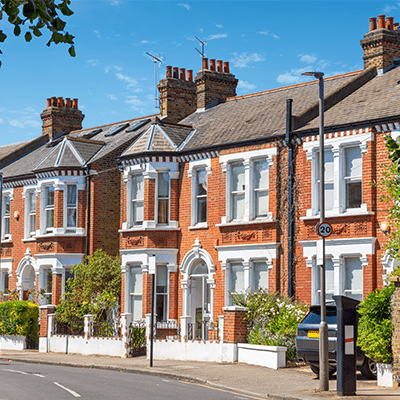Whether you are an accidental or first time landlord, or a seasoned property professional with a prospering portfolio, our common sense approach to residential buy to let mortgages is designed to get you renting out in no time.
We've helped thousands of landlords over the last 50 years so we've seen every type of property and dealt with every scenario. We are specialists in dealing with non-standard properties, from those missing a kitchen or bathroom, all the way up to listed buildings.
If your rental income on the property doesn't quite cover the full Buy to Let mortgage repayment, top slicing will be considered. This allows applicants to top up the amount paid from rental income with surplus personal income. Additionally, we do not require applicants to own a personal residential property to qualify for a residential Buy to Let mortgage.






